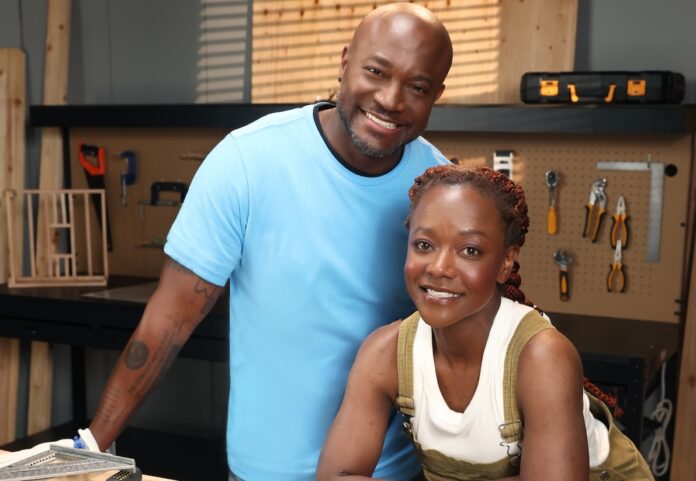There are some mental illnesses we have been afraid to talk about, and schizophrenia is one of them. Actor Taye Diggs believes we need to change the conversation. “Those cliches are rooted in the past.” He should know. His sister, Christian, was diagnosed with schizophrenia as a young adult, and he and his family have been supporting her through her journey every step of the way. Recently, Bristol Myers Squibb announced Diggs as a Schizophrenia Community Partner to empower those with the condition through the Live Your PosSCZible Campaign.
Christian Diggs opened up to us about her diagnosis, treatment, and learning to live, learn, and thrive beyond that.
“My first episode occurred on a flight. That day, my life completely changed. Everything in my world suddenly felt disconnected,” she says. “I felt out of control; my mind was not mine.”
“At first, it was really scary and shocking, but after getting a diagnosis. I felt a sense of relief.” Since she comes from a family of academics, she immediately went into research mode to discover everything she could about the condition.
The adjustment took some time.
“I felt like a passenger in my own body,” she says. “I had to constantly remind myself that that phase of my life was over and that I must focus on learning how to live and succeed in this next phase.”
However, since schizophrenia is so misunderstood, Christian experienced many mixed emotions early on. “When I was first diagnosed, I experienced a lot of shame and embarrassment about what I was going through. I felt that I had let my family down,” she explains. “I didn’t fully realize until years later, when my symptoms had lessened, how integral and solid my family’s support had been. Honestly, I would not have made it to where I am today if it weren’t for my family.”
Through her schizophrenia journey, Christian has learned a lot about herself:
I’ve learned that I can change and adapt to tough and seemingly insurmountable situations.
I am capable of more than just surviving my diagnosis; I can live again.
I thought I had lost everything, but with patience and determination, I have slowly gotten back out there and learned to reconnect with people.
I learned to trust that I know what I need to be okay now and ask for help if unsure. When living with symptoms of schizophrenia, it is crucial to have a care team to help you find tools and coping mechanisms that work and make sense for you.
It is essential to stay connected to friends and family and to use outside resources, including those from the advocacy groups featured on the Live Your PosSCZible website.
I seek joy in my work as a Carpenter!
Christian is now in her 4th year as a Carpenter Apprentice. “Every day, I go to work feeling so much gratitude and awe that I’ve made it to this phase of my life!” Hot yoga is essential to her, too. She started the classes as a way to develop mental discipline. “At first, being in a hot room with so many people was extremely difficult, and I would have to leave the class,” she says. “With time, I could stay longer and longer, and now taking a class is no sweat…actually, a lot of sweat is involved. I also find happiness in dancing and cycling, and I’m learning to roller skate. When I was first diagnosed, I didn’t think that….. living your PosSCZible could become a reality.”
________________________________________________________________________

Since being diagnosed with schizophrenia at 21, Tyson McGuire has discovered that he doesn’t give up easily. “Even though dealing with schizophrenia is a challenge, I try my best not to make sure I don’t spiral down,” he says. “I try to be happy and smile a lot.”
Tyson has a sound support system that includes his mother, sister, and friends, who keep him grounded in reality. They make sure that he’s okay and that he doesn’t isolate himself. “I have had some friends who didn’t understand schizophrenia and how it affects people,” he says. “Some people have bad stereotypes about it. I had one friend whose girlfriend didn’t want me to come over to their house because of my diagnosis.”
“Music also helps me a lot. I play piano and compose my own music, which I started before my diagnosis and continue today,” Tyson says.
If I had to use one word to describe myself today, it would be “perseverance.” Although some of my goals don’t look the same as before my diagnosis, I am finding new ways to Live my posSCZible. I was recently accepted into Ohio State University (OSU), where I’ll continue my physics degree. And I continue to develop skills – like music and art – that I started when I was younger and continue to enjoy today.






